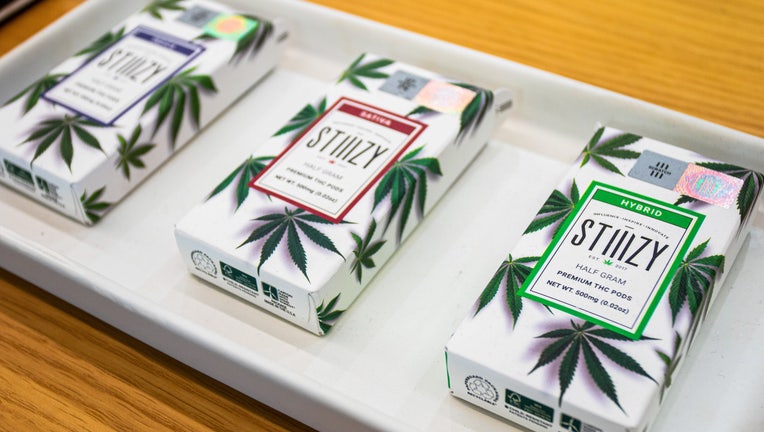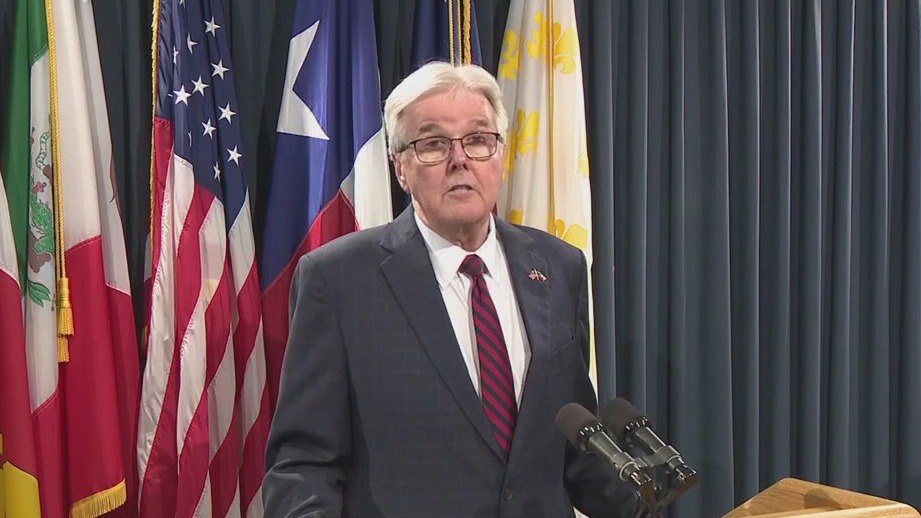Arkansas THC ban cited in Gov. Abbott’s SB 3 veto proclamation upheld by federal court

Marijuana THC (tetrahydrocannabinol) products are on the display shelf during Rise dispensary grand opening. (Photo by Ty O'Neil/SOPA Images/LightRocket via Getty Images)
LITTLE ROCK - A 2023 Arkansas bill banning THC consumables, referenced by Gov. Greg Abbott as an example of why Texas’ ban required a veto, was upheld by a federal court on Tuesday.
The bill, which had sat dormant in the midst of legal struggles since being signed over two years ago, will now be allowed to take effect in Arkansas.
Arkansas THC Ban
Senate Bill 358, much like Texas’ Senate Bill 3, criminalizes THC consumables, including hemp derivatives made legal by the 2018 U.S. Farm Bill.
Despite being passed into law in 2023, the Arkansas bill was quickly challenged and stalled in federal court, where it remained in limbo until Tuesday.
The U.S. Court of Appeals for the 8th Circuit decided on Tuesday in favor of Senate Bill 358, confirming the ban on THC products and allowing the legislation to take effect as planned.
What they're saying:
Arkansas Gov. Sarah Huckabee Sanders released a statement on Tuesday celebrating the court’s decision.
"Today, the 8th Circuit unanimously agreed with Arkansas’ ban on products containing THC like Delta 8 - reinstituting the ban. This is a huge victory for the state and a great step towards protecting generations of Arkansas’ children from the dangers of synthetic marijuana."
Patrick posted on X later that day, congratulating Huckabee on the decision.
Abbott released a statement on Tuesday night defending his decision in the wake of Arkansas' victory.
"To be clear, the Arkansas law differs from S.B. 3 in legally consequential ways. Unlike the Texas bill, Arkansas’ law did not ban "any amount" of a cannabinoid, it expressly permitted hemp farming consistent with federal law, and it carved out interstate transportation. Those are three legal concerns I raised about S.B. 3 that do not exist in the Arkansas law. Even though the Arkansas law was not plagued with the same legal defects as the Texas bill, it still was unenforced for two years and will be further tied up in court for years to come. I vetoed the Texas bill because we do not have time for a protracted legal fight - we must act now to keep Texas children safe. That process begins next month."
Gov. Abbott Vetoes SB 3

Dan Patrick reacts to veto of SB 3
Texas Lt. Gov. Dan Patrick accused Gov. Abbott of wanting to legalize recreational marijuana. Late Sunday night, Gov. Abbott vetoed SB 3, which would have banned the sale of most consumable hemp products
Local perspective:
On Sunday, Abbott made a last-minute decision to veto Senate Bill 3, a controversial ban on THC products backed heavily by Lt. Gov. Dan Patrick and passed through the House and Senate.
In a Sunday night proclamation on the decision, Abbott voiced his concern that the bill would face "valid constitutional challenges" in its current form. Comparing Senate Bill 3 to Arkansas’ ban, Abbott argued instead for strict regulation in order to avoid a multi-year battle with no end in sight.
U.S. Committee Moves to Close THC Loophole
Big picture view:
On Monday, the U.S. House Appropriations Committee passed a spending bill which would, in part, close the THC loophole created in the 2018 Farm Bill. The bill in question allowed for the production of industrial hemp, and prohibited states from criminalizing its sale.
Since the Farm Bill’s inception, states like Texas have been flooded by hemp-derived THC products; in Texas’ case, birthing a multi-billion dollar industry that supports tens of thousands of licensed retailers.
The Fiscal Year 2026 Agriculture, Rural Development, Food and Drug Administration, and Related Agencies Appropriations Act would remove this loophole and create a Quantifiable Limits Task Force, which would aim to create FDA regulations within a year of the bill’s effectiveness.
The measure would change the federal definition of hemp, including delta-8 THC, smokable hemp flower and other intoxicating products.
What's next:
If the Appropriations Committee’s spending bill is passed in its current state, the FDA’s new task force would be required to provide recommendations for THC regulation and safety within 180 days, with final recommendations due within one year.
The bill now goes before the full US for a potential vote. If passed, it would then go to the Senate.
Texas will begin a special session of the legislature on July 21, largely with the goal of reworking Senate Bill 3 to regulate THC products with the goal of preventing sale to children and avoiding legal troubles with the proposal.
If Senate Bill 3 is passed, it will go into effect on Sept. 1.
The Source: Information in this article comes from public statements made by lawmakers and previous FOX reporting.


